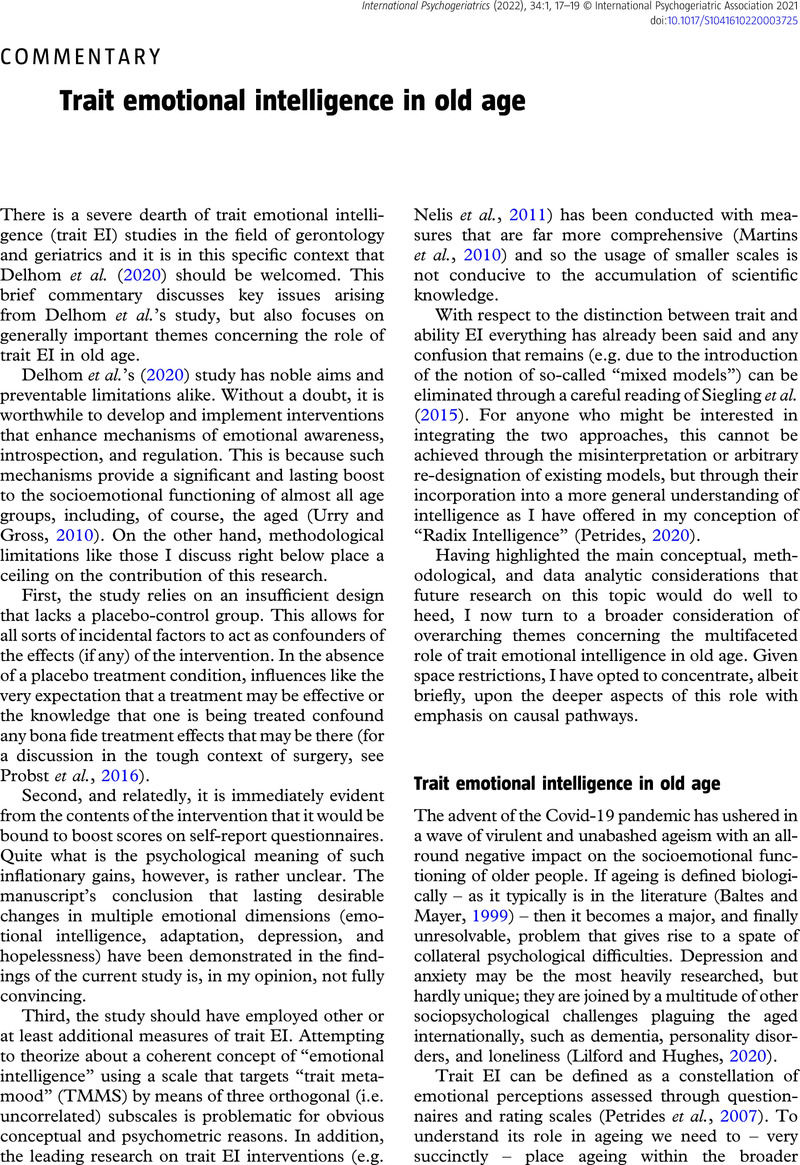Crossref Citations
This article has been cited by the following publications. This list is generated based on data provided by Crossref.
Penet, JC
and
Fernandez-Parra, Maria
2023.
Dealing with students’ emotions: exploring trait EI theory in translator education.
The Interpreter and Translator Trainer,
Vol. 17,
Issue. 3,
p.
332.



